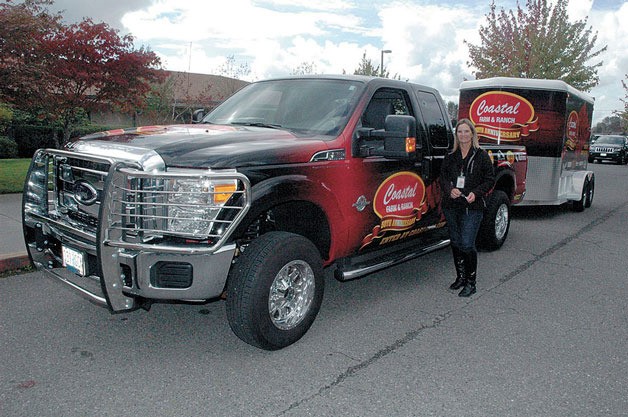The Pentagon’s decision to award a $35 billion Air Force tanker contract to Boeing has drawn praise from government officials at the city, county, state and federal levels in Washington.
“The Arlington Airport has more than a hundred businesses on site, and a large portion of those are either Boeing suppliers or else manufacture parts and equipment that Boeing uses,” Arlington Assistant City Administrator Kristin Banfield said. “This contract should help our businesses expand even more, and hopefully put a lot of folks back to work.”
Gloria Hirashima, chief administrative officer and community development director for the city of Marysville, admitted to some nervousness prior to the Feb. 24 announcement that Boeing had beat out European competitor EADS for the contract.
“We look at the Marysville and Arlington area as a future center for manufacturing and industrial jobs,” Hirashima said. “A healthy and vibrant Boeing is a key piece of that economic growth.”
The Boeing 767 jet serves as the basis of the tanker, and this contract will keep it in production through the rest of the decade. Hirashima acknowledged that Marysville already owes a great deal of its population’s employment to Boeing, so she’s pleased to see those jobs sustained as Boeing replaces 179 Air Force KC-135 tankers, which Boeing built in the 1950s and 1960s.
“The women and men of Snohomish County who build the best airplanes in the world are without question the most capable workers with whom to entrust the lives and safety of our U.S. military,” Snohomish County Executive Aaron Reardon said. “For generations, our local workers have been building trusted, reliable airplanes that keep the women and men of our U.S. military safe. Their craftsmanship has not only saved lives overseas, but it has also protected the lives of our citizens back home as well.”
Reardon asserted that it would have been “questionable and self defeating” to choose an airplane besides the Boeing 767, which he believes best serves the needs of America’s military members and national security alike.
Washington state Gov. Chris Gregoire commended Boeing for “its determination and tremendous work” to land this contract, which she sees as a win for both the company and the 11,000 aerospace workers in the state alone whom she anticipates will contribute to assembling the tanker.
“Following an open, transparent process, the Department of Defense realized what I’ve been saying all along, and that is that Boeing has designed the safest, most cost-effective tanker to serve both our military and our taxpayers well,” said Gregoire, who’s spent the past year advocating on behalf of Boeing with the state’s Congressional delegation and other state governors as part of the U.S. Tanker Coalition. “Our military, our national security, our economy and the 50,000 workers nationwide who are impacted by this decision are better off following this announcement, and for that, we should all be proud.”
U.S. Rep. Rick Larsen predicted that the Pentagon awarding Boeing this contract would provide a boost to the area economy and provide jobs for thousands of local workers in building the tanker.
“The Air Force’s announcement confirms what I’ve known for a long time,” Larsen said. “Northwest aerospace workers are the best in the world, and Boeing will build an outstanding tanker for our military.”
In the weeks leading up to this announcement, analysts had speculated that the tanker contract would go to EADS, the parent company of Boeing’s commercial rival Airbus, for an A330 jet which is larger than the Boeing 767.





